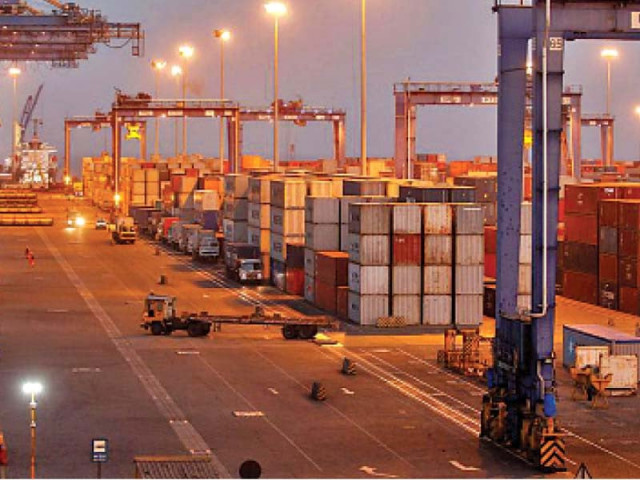Export policy takeaways from World Bank report
Politicians need to agree on charter of exports for prosperous economic future

The World Bank has published a detailed report on the development and export revival in Pakistan. Indeed, Pakistani politicians need to agree on a charter of exports as this is a critical requirement for a prosperous economic future of the country.
Following are the policy-related key takeaways from the report:
Remove anti-export bias of tariff policy: Pakistani exports are dependent on imported raw material (good quality yarn, etc). Therefore, a coordinated strategy must be devised to rationalise tariffs on export-related imports.
Customs duty on these commodities must fade away. Duty remission schemes for exporters must be digitised and automated. These schemes must be complemented by trust-based collection systems, risk-based audits and time-bound approval processes.
Major stakeholders in this policy framework are the Ministry of Commerce, Federal Board of Revenue (FBR) and National Tariff Board.
Improve market access: Pakistan must negotiate market access with new potential export markets. Furthermore, trade negotiators must be trained and their skills must be improved. Also, foot and mouth disease-free zones should be established in coordination with the private sector to secure the fast growing beef market in China.
Major stakeholders in this policy framework are the Ministry of Commerce, private sector, Ministry of National Food Security and Research and Trade Development Authority of Pakistan (TDAP).
Foreign direct investment (FDI) promotion: The Investment Act and Investment Policy 2013 are not in harmony and sync as per the World Bank. This must be rectified.
Furthermore, the process of registration of paid-up capital with the State Bank of Pakistan (SBP) and repatriation of profits by multinational organisations is very cumbersome and complicated. This must be simplified to attract more FDI.
Major stakeholders for this policy framework are the Board of Investment (BOI), the SBP and TDAP.
Export subsidies – possible improvements: Services exports are neglected in export subsidies. Therefore, the scope of export subsidies must be widened and must include services sector exports.
Furthermore, the growth in exports must be rewarded rather than the level of exports to incentivise export growth. If different rates are applied to various products, priority must be given to new export products, new exporters, more sophisticated, ie high margin products and products that are not water-sensitive (as water is becoming a perpetually scarce resource).
Furthermore, the cost and benefit analysis of the Drawback on Local Taxes and Levies (DLTL) policy mechanism must be critically evaluated and improved, if possible.
Major stakeholder for this policy framework is the Ministry of Commerce.
Export credit facilities: Resources must be reallocated to the Long-term Financing Facility (LTFF) from the Export Finance Facility (EFS) as there is still a lot of room for capital accumulation and replacement in the export-related industry.
The extent of subsidy must be critically evaluated based on a prudent cost and benefit analysis. The SBP is the key stakeholder in this policy framework.
Export promotion and facilitation: The World Bank has proposed to harmonise export intelligence and consolidate it under one agency. It has also been recommended to consolidate trade portals under the National Single Window in accordance with the World Trade Organisation’s (WTO) trade facilitation agreement.
Support should be given to new exporters for attending trade fairs. They have also recommended to critically evaluate the Export Development Fund and exporters should be allowed to retain increased amounts of export proceeds.
Furthermore, the outflow limit of $400,000 for export-related expenses must be rectified/ enhanced.
Major stakeholders in this policy framework are the Pakistan Software Export Board (PSEB), FBR, TDAP and Ministry of Commerce.
Skill development: It is recommended that the curriculum related to export-related educational programmes must be upgraded to match requirements of the new era. Professional and technical input must be given due importance in this process.
The government should facilitate IT-related online certifications from accredited institutions (Coursera, etc) in order to increase the market share of fast-growing IT exports. Mechanism must be established for increase in a firm’s capabilities with respect to export-related sectors.
Major stakeholders in this policy framework are the Higher Education Commission, private and public universities, and Small and Medium Enterprises Development Authority (Smeda).
All these recommendations of the World Bank present a candid view from an independent angle. The bottom line of these recommendations is very simple. All of us must resort to hard and smart work.
It is a pity that a nation of more than 200 million can only produce goods worth $25-30 billion for the world (exports) while consuming goods worth $60-70 billion from the world (imports).
On the other hand, annual remittances sent by only nine million expats amount to $30 billion. This means that the nine million expats provide more foreign currency than the 200 million locals.
The writer is a senior banker and teaches economics
Published in The Express Tribune, November 15th, 2021.
Like Business on Facebook, follow @TribuneBiz on Twitter to stay informed and join in the conversation.



















COMMENTS
Comments are moderated and generally will be posted if they are on-topic and not abusive.
For more information, please see our Comments FAQ